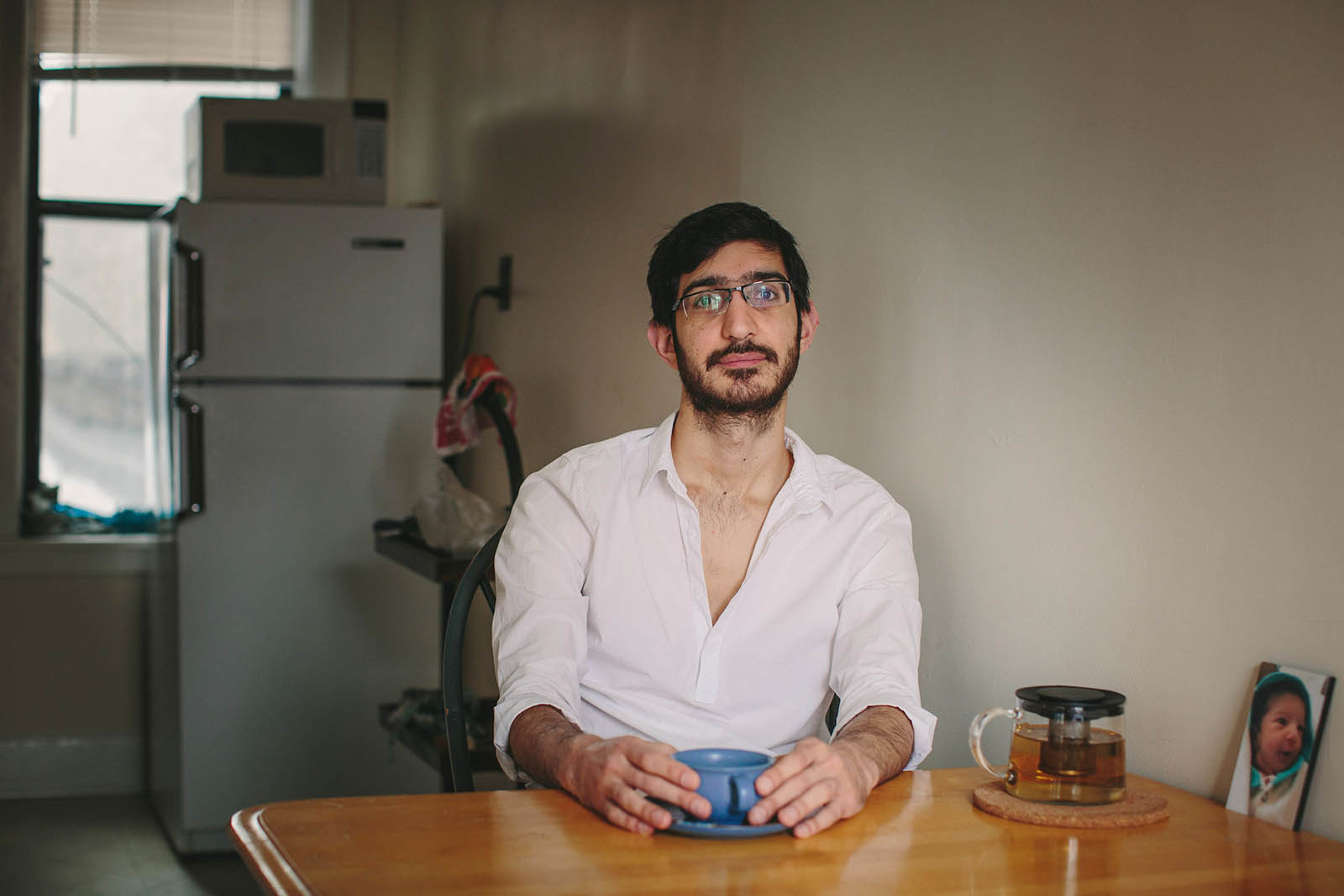Ali Sobhani*, 28, is an Iranian PhD student in his second year studying music theory and history at the University of Chicago. After leaving his home country and spending five years in Amsterdam, he came to the U.S. in 2015 on a student visa that expires in June.
How did you feel when you first heard about the executive order?
It was a very bad day. I started panicking. My visa expires in June 2017, so I was already making a plan to renew it. I was worried under the current administration that it would take longer than usual, which is already a very cumbersome process, despite what the administration says.
The most immediate impact for me, as a student, is that I am supposed to be here to focus on my studies and obviously I cannot do that. Yesterday I was just trying to focus and do some work. I cannot. I'm just frantically looking for news updates or messages from friends, or lawyers, or whatever. As a citizen of a “third world country” or of “the wrong country,” you always have to fight against prejudices and hurdles along your way. You have to remove so many things that other people do not have to remove and still face so many challenges that others don't. My plan was to finish my PhD here and possibly find a job within academia here or elsewhere, and now I'm like, should I leave this country and never come back? Should I sell my furniture? Now I just don't know what to do.
How many more years do you need to complete your program?
They say the average is between six and seven years for music theory. At the end of the second year, which would be the end of this academic year, I can apply for a master's degree, which is good because in case things turn out to be this bad I can always quit the program go elsewhere and study to get a PhD with a master's degree.
If someone in a position of power regarding the executive order sees this article, what would you want to say to them?
President Trump thinks that it was very easy to get visas and come to the U.S. But an American visa is one of the hardest visas to get because you have to go through so many things. Fingerprints, your picture taken, you have to have interviews. A lot of people can only get a single-entry visa. I don't know what extreme vetting would mean. I've been joking with my friends because I heard that this would include things like questions about women’s rights, LGBT rights, that kind of stuff. And I'm like, “What am I supposed to say, should I say that unlike the president I tend to treat women with respect? Unlike Mr. Mike Pence I treat homosexuals with respect, and I don’t need to send them to camps to straighten them up.” They have left no values to be questioned any more.
What do you think about how Iran’s government reacted to the executive order?
I read the disclaimer published by the foreign ministry. [The statement calls the travel ban “insulting restrictions” and says Iran will take “proportionate legal, consular and political action while respecting the American people and differentiating between them and the hostile policies of the U.S. Government.”] I felt a little bit proud because it was different from the terrible blanket ban that the U.S. government did. This executive order from Trump really reminds me of a terrible government we had for eight years in Iran, under Mahmoud Ahmadinejad. He was exactly the same sort of populist, terrible president who was full of hateful rhetoric and who made life for Iranians miserable.
And now you worry you’re seeing a political figure like that rise to power in the U.S.
Absolutely. I mean Iran is a sort of regional power, and it can have a certain influence on its surrounding countries. But the U.S. is the most powerful nation in the world, and its policies affect the whole world.
As a young person growing up in Iran, what did you think of the UN and U.S. sanctions imposed on your country that were aimed at stopping “illicit nuclear activities”?
It’s very hard to say, because I do not represent the majority of [Iran’s] youth. But I can say that the sanctions, for me and for my circle of friends, just affected us directly and didn’t do what they were supposed to do: cripple government. Because the regime just uses their own resources to fund themselves, and of course the people are the ones who suffer the ramifications.
What’s your long-term plan like now? Would you like to stay here and work in academia in the U.S. or are you planning to look for jobs abroad?
I don't know. I mean, it's four or five years away from now, and it’s very hard to predict what will happen. Personally, if I had the choice I would have preferred to go elsewhere and not stay in the United States. To go to Europe for example, where I feel much more connected to the people and the culture and where I have sort of like a second home. If the situation in Iran gets better I could possibly go there, or at least temporarily and see how I could function there. I cannot imagine myself living under the current situation in the U.S., but that's a different question, because I can’t predict what will happen.
* Sobhani's name has been changed to protect his identity.
This interview was conducted on January 29 and has been edited for length and clarity. See interviews with Chicagoans from each of seven countries listed in President Trump's travel ban here.



